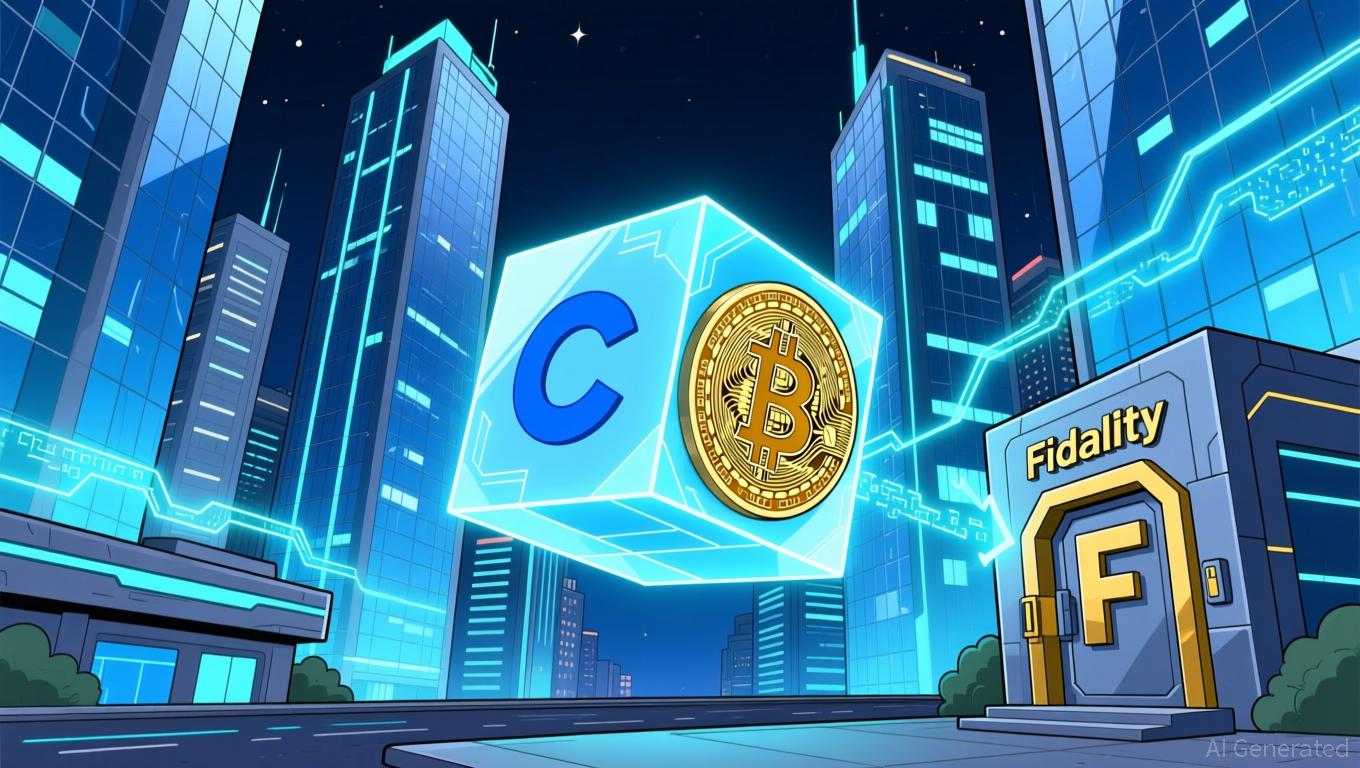Why Is Internet Computer (ICP) Experiencing a Surge as Interest in Decentralized Computing Grows
- Internet Computer (ICP) surged 30% in Q3 2025 driven by technical upgrades, institutional adoption, and regulatory clarity. - Technical upgrades (Fission, Stellarator) boosted computing/storage by 50%, while AI integration (Caffeine AI) enabled on-chain machine learning. - Cross-chain partnerships (Chain Fusion, Google Cloud) and institutional collaborations (Tether, Parfin) expanded ICP's enterprise utility and TVL to $237B. - U.S. CLARITY Act and EU MiCAR reduced regulatory ambiguity, accelerating inst
Advancements in Blockchain Infrastructure: Embracing Scalability and AI
ICP’s momentum is fueled by significant technical progress that tackles major challenges in decentralized computing. Recent network enhancements, including Fission and Stellarator, have

The platform’s hybrid architecture—which merges scalability, interoperability, and an AI-centric infrastructure—has also led to new cross-chain collaborations. For example, Chain Fusion facilitates connections with
Institutional Momentum: Strategic Partnerships and Governance Evolution
ICP’s appeal to institutions has grown through targeted alliances and governance structures tailored to institutional requirements. The Network Nervous System (NNS), ICP’s decentralized governance mechanism,
Collaborations with leading financial entities further highlight ICP’s institutional traction. For instance, partnerships with Tether and Parfin in Latin America—a region that has processed $1.5 trillion in
Policy Developments and Regulatory Certainty
The financial environment in 2025 has been influenced by policy actions that have
On a global scale, clearer regulations in Europe (through the EU’s MiCAR) and Asia (such as Hong Kong’s stablecoin framework) have further legitimized blockchain technology. Major institutions like BlackRock, UBS, and MicroStrategy have
Obstacles and Future Prospects
Although ICP has gained significant traction, it still contends with challenges such as
Summary
The rapid growth in ICP’s value and adoption highlights the evolution of decentralized computing as a practical infrastructure solution for businesses and institutions. By merging technological innovation, strategic alliances, and regulatory compliance, ICP has established a distinct position within the blockchain space. As the need for decentralized computing continues to expand, ICP’s responsiveness to institutional requirements and regulatory changes is likely to secure its place as a foundational element of future digital infrastructure.
Disclaimer: The content of this article solely reflects the author's opinion and does not represent the platform in any capacity. This article is not intended to serve as a reference for making investment decisions.
You may also like
Pi and CiDi Games Broaden PI's Applications, Driving Web3 Gaming Toward Widespread Adoption
- Pi Network partners with CiDi Games to expand PI's utility in Web3 gaming via in-game transactions and H5 platform integration. - MiCA-compliant whitepaper submission to ESMA boosts PI's regulatory legitimacy, triggering 10% price rally and EU exchange readiness. - Bullish technical indicators and whale accumulation drive PI toward $0.247 resistance, with 8% price surge and 354% volume increase. - Strategic gaming expansion aims to create developer-user feedback loop leveraging Pi's 10M+ Pioneers and 350

Dogecoin News Today: Dogecoin's First ETF Launch: Meme Culture Faces Off Against Institutional Barriers
- Grayscale's GDOG ETF and Bitwise's BWOW ETF marked Dogecoin's first U.S. physically-backed institutional access, aligning it with Bitcoin and Ethereum in regulated markets. - ETF debut faced muted trading volumes below $12M forecasts, attributed to cautious sentiment and meme coin volatility despite Grayscale's utility-focused marketing. - Trump's decentralized DOGE Service continues efficiency reforms through embedded staff, raising accountability concerns amid operational disruptions from cost-cutting.

Tether CEO Disputes S&P's Rating, Arguing It Reflects Traditional Finance's Misconceptions
- Tether CEO Paolo Ardoino criticized S&P's downgrade of USDT's stability rating, blaming traditional finance's "loathing" and misunderstanding of crypto operations. - S&P cited 5.6% exposure to Bitcoin/gold in Tether's $184B market cap, warning of undercollateralization risks and transparency gaps in reserve management. - Tether reported $10B+ 2025 profits with $6.8B excess reserves and $135B U.S. Treasury holdings, positioning itself as the 17th-largest U.S. debt holder. - Ardoino dismissed S&P's concern

Bitcoin News Today: "Strategy Moves $5.1B in Bitcoin to Fidelity: Safeguarding Assets in the Face of Regulatory and Liquidity Challenges"
- Strategy transferred $5.1B in Bitcoin (58,390 BTC) to Fidelity from Coinbase , diversifying custody away from single providers. - Fidelity now holds 427,000 BTC as a top institutional custodian, using pooled omnibus systems for security over transparency. - The move follows Strategy's €620M fundraising to meet $120M obligations, amid MSCI's proposed crypto-holding exclusion risks. - Fidelity's opaque custody model enables flexible transactions but raises concerns over hidden sales, contrasting Coinbase's
